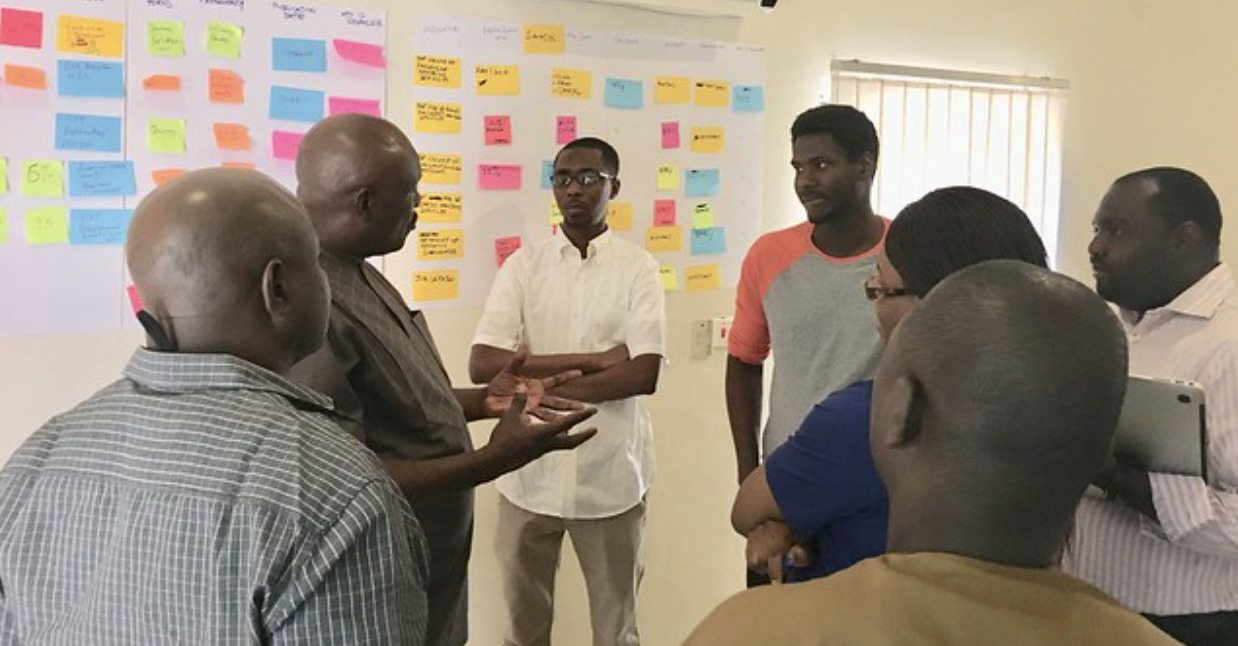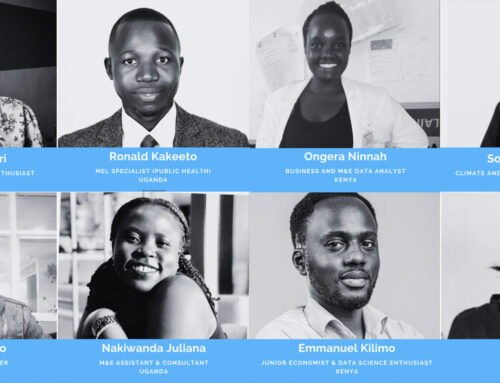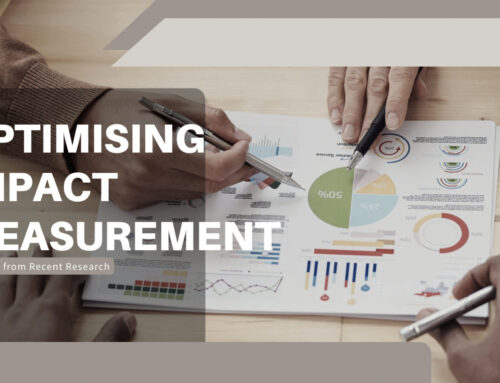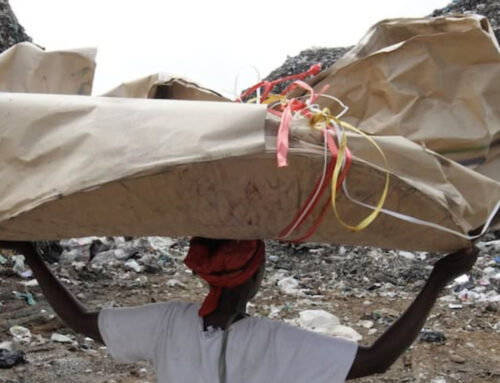Introduction
Engaging government stakeholders requires a deep understanding of their operational frameworks, decision-making processes, and strategic priorities. As an international evaluation and research firm, Cloneshouse has successfully collaborated with various government Ministries, Departments, and Agencies (MDAs), including the Office of the Special Adviser to the President on Youth Initiative, the Federal Ministry of Budget and Economic Planning (FMBEP), the Bureau of Public Enterprises (BPE), the Nigeria Extractive Industries Transparency Initiative (NEITI), and the Petroleum Technology Development Fund (PTDF). Through these engagements, we have gleaned essential lessons on fostering productive and long-term partnerships with government entities. Below are five key business development (BD) lessons for effectively engaging government stakeholders in the practice of MEL (Monitoring, Evaluation and Learning):
1. Think Long term while Aligning Your Solutions with Government Priorities
Governments prioritize policies and programs that align with national development goals. Cloneshouse’s collaboration with the Federal Ministry of Budget and Economic Planning (FMBEP) MEL Department illustrates this principle. At Cloneshouse, we prioritize long-term partnerships over one-off engagements. Our collaboration with BPE and other government entities reflects this commitment. Rather than conducting one-time training, we create avenues for sustained impact through mentorship programs and post-training advisory support. This approach ensures continuous capacity development for government officers.
Similarly, our work with the Office of the Special Adviser to the President on Youth Initiative aligns with the government’s drive to empower young Nigerians. This partnership includes tailored MEL training for key staff responsible for monitoring and evaluating initiatives within the office. To reinforce sustainability, we provide a one-year post-training advisory support to MEL staff, equipping them with the skills needed for long-term impact. Additionally, by enhancing the Youth Activities Dashboard (YAD) with AI capabilities and data-driven insights, we are strengthening the government’s transparency and accountability efforts.
Government stakeholders are more likely to engage when your solutions address their key priorities and policy objectives.
2. Build Credibility Through Independent Research and Assessments
Government agencies value data-driven insights that inform policy and decision-making. Cloneshouse independently conducted the 2019 Nigeria Readiness Assessment to evaluate the country’s M&E system, providing valuable recommendations that were later encapsulated in the National Monitoring and Evaluation Policy. Our credibility was further reinforced through our advisory role in shaping government policies. Our 2019 Nigeria Readiness Assessment provided crucial insights that helped shape the National Monitoring and Evaluation Policy. By demonstrating how our work supported the Ministry’s mission, we positioned ourselves as a valuable partner in strengthening Nigeria’s M&E framework.
Another example is our collaboration with NEITI (Nigeria Extractive Industries Transparency Initiative) where we provided technical support on integrating M&E into their extractive transparency framework. By demonstrating expertise through independent research and practical solutions, we strengthened our credibility in working with transparency-focused government institutions.
Conducting independent assessments and sharing valuable research findings can establish your organization as a credible and knowledgeable partner for government agencies.
3. Leverage Relationships and Past Engagements
Developing relationships with key government stakeholders is crucial for sustained collaboration. Cloneshouse has maintained strong relationships with FMBEP officials since 2018, facilitating our ongoing engagements. For instance, our past recommendation of Deputy Director Mrs. Olasumbo Yakub to participate in the Global Parliamentarian Conference on Development Evaluation in Sri Lanka strengthened our credibility and rapport with the Ministry.
Additionally, our long-standing relationship with the Petroleum Trust Development Fund dates back to 2013 when Cloneshouse delivered its first tailor-made training for their staff. This engagement laid the foundation for our continued involvement in building MEL capacity within Nigeria’s petroleum sector. Through these relationships, we have had multiple opportunities to support government institutions beyond initial projects.
Long-term engagement and consistent value delivery help strengthen relationships and open doors for future collaborations.
4. Demonstrate Impact and Provide Capacity Building
Governments seek partners who can deliver tangible results and capacity-building opportunities for their workforce. In our engagement with the Bureau of Enterprises between 2018 and 2019, Cloneshouse significantly strengthened the capacity of BPE staff, equipping them with the skills needed to design and implement a robust result-based monitoring and evaluation (M&E) system. Participants not only deepened their understanding of M&E principles but also gained practical insights into applying these concepts within the post-transactional performance monitoring framework.
Cloneshouse’s free training, bi-weekly brown bag sessions, and newsletters have also provided continuous learning opportunities for other government M&E officers. The FMBEP MEL Department has acknowledged the impact of these initiatives, describing Cloneshouse as a “household name” in the department.
Our work with NIPRD (National Institute for Pharmaceutical Research and Development) highlights our dedication to capacity building. Through our partnership with the Office of the Director General / Chief Executive Officer at the National Institute for Pharmaceutical Research and Development – Mr Adeola Jegede,, we designed and implemented a specialized MEL training program for NIPRD staff, enabling them to track and evaluate the impact of pharmaceutical research in Nigeria. By equipping government officials with the necessary skills, we ensure that M&E practices are institutionalized for long-term benefits.
Providing training and capacity-building opportunities enhances the sustainability of government programs and strengthens partnerships.
5. Identify and Support Funding Opportunities
Many government departments struggle with budget constraints and rely on external funding to implement critical initiatives. During our discussions with Federal Ministry of Budget and Economic Planning (FMBEP), the Director of M&E, Mr. Usman Abdulkadir, emphasized the need for financial support to execute departmental projects. Cloneshouse responded by incorporating fundraising opportunities into our five-year strategy, targeting international organizations, tertiary institutions, and other MDAs.
Our ability to connect government agencies with funding sources strengthens our value proposition and ensures the sustainability of joint initiatives. This strategic approach allows us to not only provide technical solutions but also address financial bottlenecks that hinder program implementation.\
Identifying funding opportunities for government initiatives can increase stakeholder buy-in and sustain long-term partnerships.
Conclusion
Engaging government stakeholders requires a strategic approach that aligns with policy goals, adds technological value, builds credibility, strengthens institutional capacity, and fosters multi-stakeholder governance. Cloneshouse’s engagement with the Nigerian government exemplifies how organizations can position themselves as indispensable partners in national development initiatives. By applying these business development lessons, organizations can forge lasting and impactful relationships with government institutions.
References:
- Cloneshouse. (2023). Cloneshouse Strengthens Collaboration with the Federal Ministry of Budget and Economic Planning on August 8, 2023. Retrieved from https://www.cloneshouse.com/2023/08/28/cloneshouse-strengthens-collaboration-with-the-federal-ministry-of-budget-and-economic-planning-on-august-8-2023/
- Vanguard. (2025). Firm Partners with Presidential Office to Strengthen Youth Empowerment Initiatives. Retrieved from https://www.vanguardngr.com/2025/01/firm-partners-with-presidential-office-to-strengthen-youth-empowerment-initiatives/
- Cloneshouse. (2019). M&E System Readiness Assessment of Service Delivery Ministries in Nigeria. Cloneshouse Web Publication. Retrieved from https://www.cloneshouse.com/portfolio-items/me-system-readiness-assessment-of-service-delivery-ministries-in-nigeria/
- Cloneshouse. (2018-2019). Enhancing Post-Transactional M&E at the Bureau of Public Enterprises (BPE). Retrieved from https://www.cloneshouse.com/portfolio-items/enhancing-post-transactional-me-at-the-bureau-of-public-enterprises-bpe-2018-2019/
- Cloneshouse. (2023). Strengthening MEL Capacity at the Nigeria Extractive Industries Transparency Initiative (NEITI). Retrieved from https://www.cloneshouse.com/portfolio-items/strengthening-mel-capacity-at-the-nigeria-extractive-industries-transparency-initiative-neiti/
- Cloneshouse. (2023). Strengthening MEL Capacity at the Petroleum Technology Development Fund (PTDF). Retrieved from https://www.cloneshouse.com/portfolio-items/strengthening-mel-capacity-at-the-petroleum-technology-development-fund-ptdf/
- Cloneshouse. (2023). Monitoring & Evaluation Training for NIPRD MEL Staff. Retrieved from https://www.cloneshouse.com/portfolio-items/monitoring-evaluation-training-for-niprd-mel-staff/
- United Nations General Assembly. (2022). Resolution on Strengthening Evaluation for Development Effectiveness. UNGA.
- Government of Nigeria. (2021). National Monitoring and Evaluation Policy. Federal Ministry of Budget and Economic Planning.

About the Author
Noelle Uloko is a dynamic professional with nearly a decade of experience in optimizing processes, fostering innovation, and cultivating strategic partnerships. Her ability to balance high-level strategic thinking with hands-on execution has enabled her to lead key operational processes, including business planning, contract and cooperation management, expert recruitment, and financial analysis.
As the Chief Operating Officer and Business Development Lead at Cloneshouse LLC, Noelle brings over seven years of proven expertise in operational management and business development. She plays a pivotal role in driving organizational growth by overseeing daily operations to ensure efficiency and effectiveness across all business functions. Additionally, she leads business development initiatives, identifying new opportunities, strengthening client relationships, and driving revenue growth. Her strategic mindset, leadership skills, and results-driven approach make her instrumental in the company’s success.




